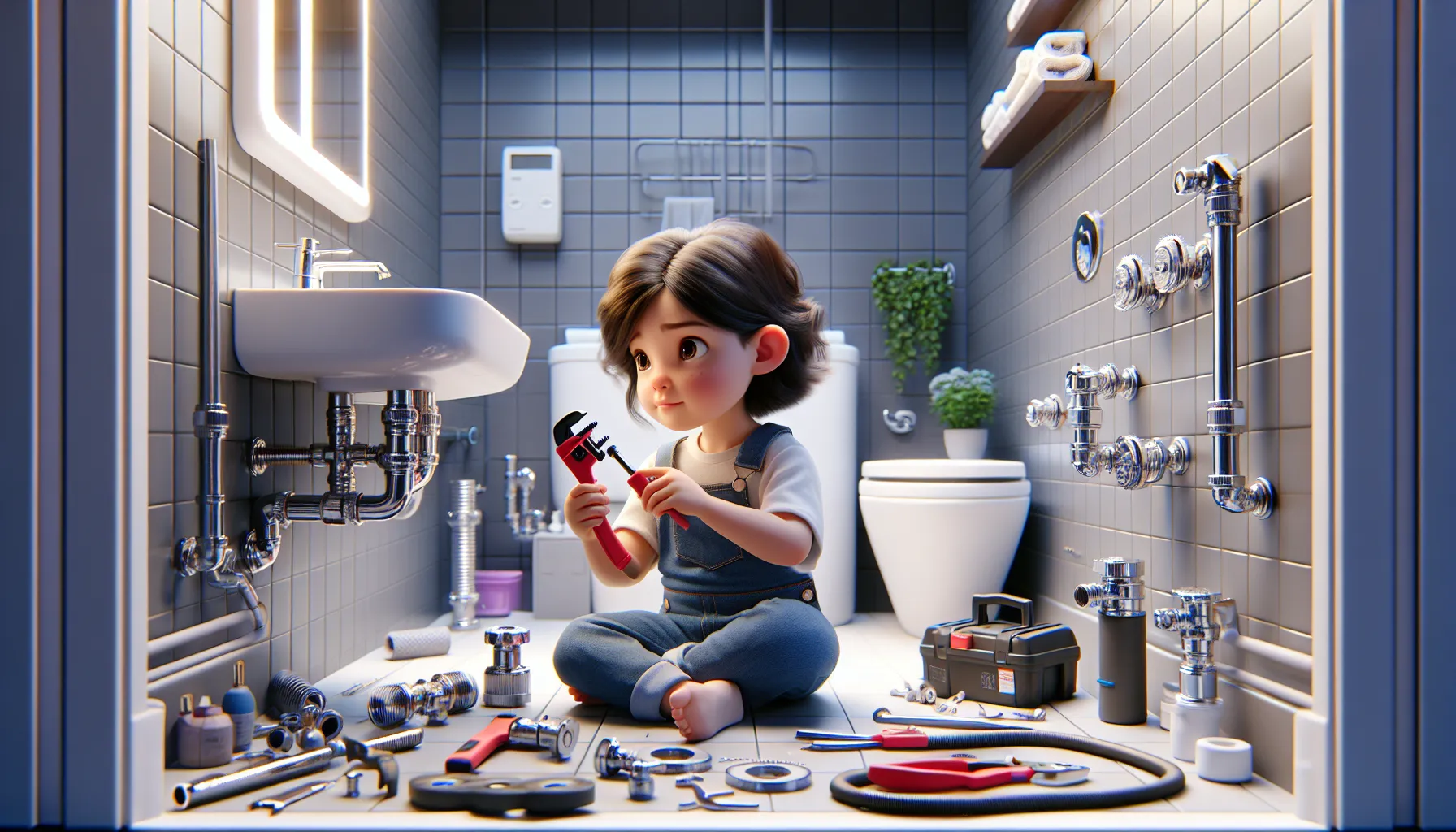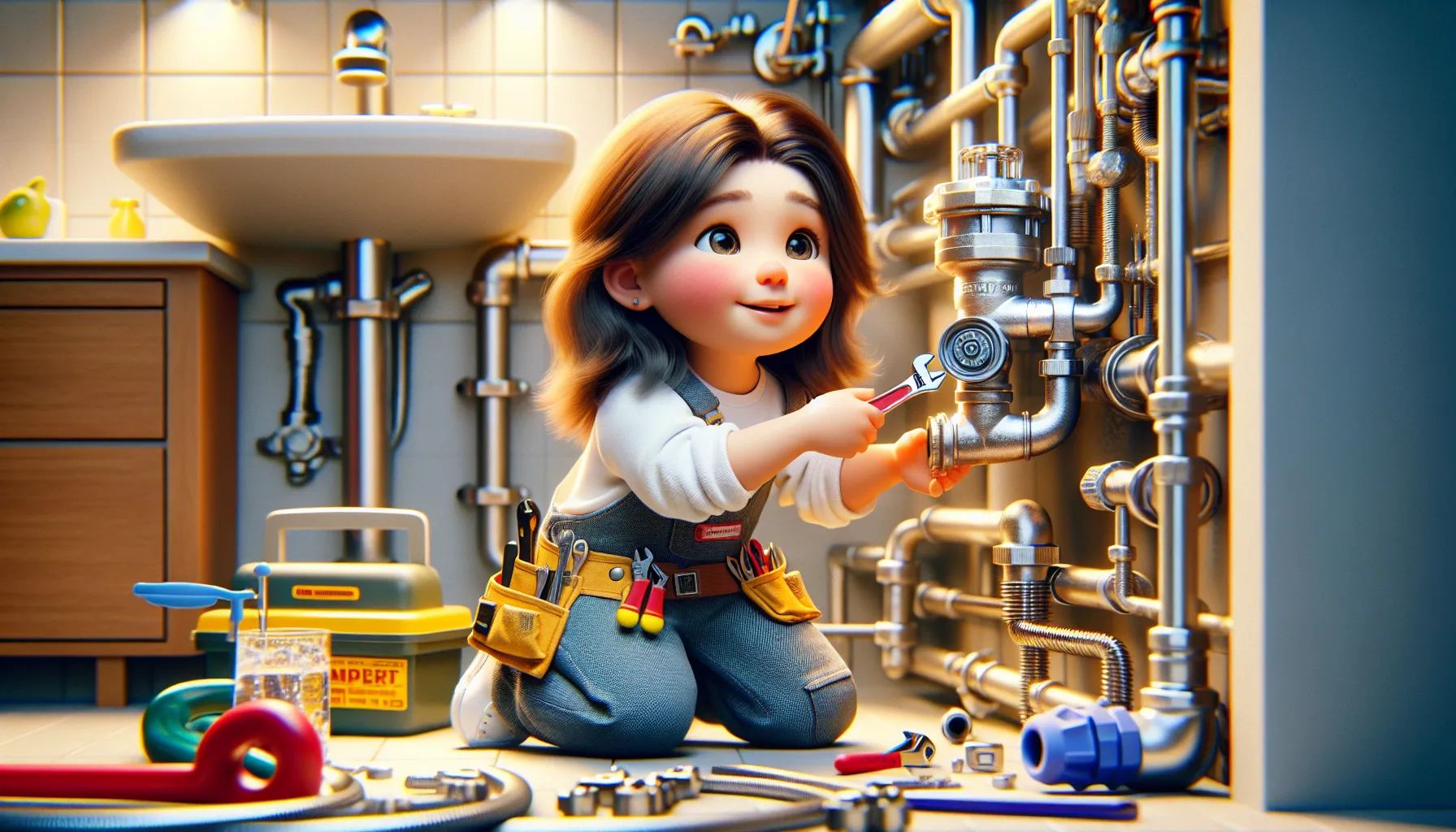Many homeowners underestimate the importance of regular plumbing maintenance, which can lead to costly and disastrous consequences. By regularly maintaining your plumbing system, you can prevent potential issues such as leaks, burst pipes, and water damage that can wreak havoc on your home. Not only does regular maintenance prevent emergencies and costly repairs, but it also extends the life of your plumbing system, ensuring it functions efficiently for years to come.
Regular plumbing maintenance also improves the quality of your water by keeping pipes clean and free of contaminants. This not only protects your health but also reduces the risk of damage to appliances that rely on clean water. Overall, investing in regular plumbing maintenance is a smart decision that can save you time, money, and stress in the long run.
Key Takeaways:
- Prevent Expensive Repairs: Regular plumbing maintenance can help identify and fix minor issues before they turn into costly repairs.
- Improve System Efficiency: Proper maintenance helps your plumbing system work more efficiently, saving you money on your water bill.
- Extend the Lifespan of Your Plumbing System: By maintaining your plumbing system regularly, you can prolong its lifespan and avoid premature replacements.
- Prevent Water Damage: Routine maintenance can help detect leaks and prevent water damage to your property.
- Promote Health and Safety: Regular plumbing maintenance can help ensure that your water supply is clean and safe for your family to use.
The Fundamentals of Plumbing Maintenance
Understanding Your Plumbing System
Systematically understanding your plumbing system is crucial for proper maintenance. Your plumbing system comprises a network of pipes, fittings, fixtures, and drains that work together to ensure the seamless flow of water in and out of your property. Knowing the layout of your plumbing system can help you identify potential issues and address them before they escalate into costly repairs. It is important to familiarize yourself with the location of shut-off valves and key components to act efficiently during emergencies.
Routine Checks and Measures
One important aspect of plumbing maintenance is conducting routine checks and measures to prevent major problems. Regularly inspecting for leaks, drips, or unusual sounds can help you catch minor issues early on. Checking water pressure, testing drains for clogs, and assessing the condition of visible pipes are all part of proactive maintenance. With regular maintenance, you can extend the lifespan of your plumbing system, reduce the risk of leaks and water damage, and ensure optimal functionality.
Extending the Lifespan of Plumbing Components
Pipes and Drains
One of the key benefits of regular plumbing maintenance is the extended lifespan it provides for your pipes and drains. Over time, pipes can deteriorate due to constant use, mineral build-up, and corrosion. By conducting regular maintenance checks, you can catch any issues early and prevent small problems from turning into major plumbing emergencies. Regular inspections and cleaning can help remove any blockages or build-up that may be putting strain on your pipes, leading to leaks and bursts. By maintaining your pipes and drains, you can ensure they function efficiently for years to come.
Fixtures and Appliances
Any fixtures and appliances connected to your plumbing system also benefit greatly from regular maintenance. Leaky faucets, running toilets, and malfunctioning water heaters are common issues that can arise without proper upkeep. Regular maintenance can help identify and address these problems before they escalate, saving you both time and money in the long run. By ensuring that fixtures and appliances are in good working condition, you can avoid the inconvenience of sudden breakdowns and improve the overall efficiency of your plumbing system.
Additionally, maintaining fixtures and appliances can also help conserve water and energy, reducing your utility bills and environmental impact. By taking care of your plumbing components, you can enjoy improved functionality and longevity while also contributing to a more sustainable home.
Drains
Regular maintenance of drains is crucial to prevent clogs, backups, and sewage issues. Over time, debris, grease, and other substances can accumulate in your drains, leading to slow drainage or complete blockages. By scheduling routine drain cleaning and inspections, you can prevent costly and hazardous plumbing emergencies while ensuring that your drains flow freely and efficiently.
Preventing Common Plumbing Issues
Avoiding Clogs and Blockages
After regular plumbing maintenance is conducted in your home, you can significantly reduce the occurrence of clogs and blockages in your pipes. By inspecting and clearing out any build-up of debris, grease, or hair, you can ensure that your drains flow smoothly, preventing blockages that can cause backups and overflows.
For an added layer of protection, consider using drain strainers or hair catchers in your sinks and tubs. These simple tools can help trap debris before it goes down the drain, ultimately preventing clogs from forming.
Preventing Leaks and Water Damage
After regular plumbing maintenance, you can also take steps to prevent leaks and water damage in your home. By checking for any signs of leaks, such as water stains on walls or ceilings, you can catch potential issues early and address them before they escalate.
One crucial aspect of preventing leaks is ensuring that all plumbing fixtures, such as faucets and showerheads, are properly tightened and in good condition. Leaks from these fixtures can not only waste water but also lead to costly damage if left unchecked.
Water leaks can cause mold growth, structural damage, and higher water bills. By staying proactive with your plumbing maintenance, you can avoid these issues and keep your home safe and sound.
Economic Advantages of Regular Maintenance
Reducing Long-Term Costs
For homeowners, investing in regular plumbing maintenance can lead to significant reductions in long-term repair costs. By identifying and fixing minor issues before they escalate into major problems, homeowners can avoid expensive emergency repairs and replacements.
With proactive maintenance, plumbers can assess the condition of the entire system and address any potential concerns, extending the lifespan of plumbing fixtures and fittings. This approach not only saves money in the long run but also ensures the efficient operation of the plumbing system, reducing the risk of costly water damage to the property.
Energy Efficiency and Utility Savings
Efficiency
With regular plumbing maintenance, homeowners can enhance the energy efficiency of their plumbing systems, leading to significant utility savings over time. Plumbing issues such as leaks, clogs, or outdated fixtures can result in wasted water and higher energy bills. By addressing these issues promptly, homeowners can improve the overall efficiency of their plumbing system and reduce monthly utility costs.
A well-maintained plumbing system can also help conserve water, contributing to a more sustainable and environmentally friendly home. By minimizing water wastage, homeowners not only save money on their utility bills but also reduce their ecological footprint.
Health and Safety Considerations
Protecting Water Quality
Water quality is a crucial aspect of maintaining a healthy living environment. Regular plumbing maintenance plays a significant role in ensuring that the water flowing into your home is clean and safe for consumption. Issues such as leaky pipes or clogged drains can lead to contamination of the water supply, which can pose serious health risks to you and your family. Regular maintenance can help you identify and address these issues before they escalate, safeguarding the water quality in your home.
Preventing Mold and Mildew
Any excess moisture in your plumbing system can create the perfect breeding ground for mold and mildew. These fungi not only cause unpleasant odors and unsightly stains but can also have serious health implications, especially for individuals with respiratory conditions. Regular plumbing maintenance helps prevent leaks and moisture buildup, reducing the risk of mold and mildew growth in your home.
Mildew can also exacerbate allergies and asthma symptoms, making it vital to keep your plumbing system in top condition. By addressing any leaks or moisture issues promptly, you can create a healthier indoor environment for you and your loved ones.
Professional vs. DIY Maintenance
Many homeowners grapple with the decision of whether to handle plumbing maintenance tasks themselves or to seek the expertise of a professional plumber. Both options have their merits, and understanding when to call a professional versus when it’s safe to tackle the job as a DIY project is vital for maintaining a well-functioning plumbing system.
When to Call a Professional Plumber
Plumber: When facing complex plumbing issues such as extensive pipe damage, sewer line problems, or major leaks, it’s crucial to call a professional plumber. Attempting to repair these issues without the necessary skills and experience can lead to costly mistakes, further damage, and potential health hazards. A qualified plumber will have the expertise and tools to accurately diagnose and fix the problem, ensuring that your plumbing system functions efficiently and safely.
Safe and Effective DIY Practices
Professional: While there are minor plumbing tasks that homeowners can safely handle on their own, it’s important to understand the limits of DIY maintenance. Tasks like fixing minor leaks, replacing a faucet, or installing a new showerhead can often be done without professional help, as long as proper safety precautions are followed. Before initiateing on any DIY plumbing project, it’s crucial to educate yourself on the necessary steps and have the right tools on hand.
When dealing with DIY plumbing maintenance, always remember to shut off the water supply before starting any work, wear protective gear like gloves and goggles, and follow manufacturer instructions carefully. Additionally, if at any point you feel unsure or uncomfortable with the task at hand, it’s best to seek professional help to avoid potential risks and ensure the job is done correctly.
Summing up
With these considerations in mind, it is evident that regular plumbing maintenance offers a wide range of benefits for homeowners and businesses alike. Not only does it help prevent costly repairs and emergency situations, but it also promotes water efficiency, prolongs the lifespan of plumbing fixtures, and ensures the health and safety of occupants. By investing in routine plumbing inspections and maintenance, property owners can save time and money in the long run while enjoying the peace of mind that comes with a properly functioning plumbing system.
FAQ
Q: Why is regular plumbing maintenance important?
A: Regular plumbing maintenance is crucial to prevent costly repairs and damage to your property. It helps identify and fix small issues before they escalate into major problems.
Q: How often should I schedule plumbing maintenance?
A: It is recommended to have your plumbing system inspected and maintained at least once a year to ensure everything is in proper working condition.
Q: What are the benefits of regular plumbing maintenance?
A: Regular plumbing maintenance can help prolong the lifespan of your plumbing system, improve its efficiency, reduce the risk of unexpected breakdowns, and save you money in the long run.
Q: What does a typical plumbing maintenance service include?
A: A typical plumbing maintenance service includes checking for leaks, inspecting pipes, drains, and fixtures, testing water pressure, inspecting the water heater, and ensuring all components are functioning properly.
Q: Can I perform plumbing maintenance tasks on my own?
A: While some basic plumbing maintenance tasks can be done on your own, it is always best to hire a professional plumber to conduct a thorough inspection and maintenance to ensure everything is in top condition.


